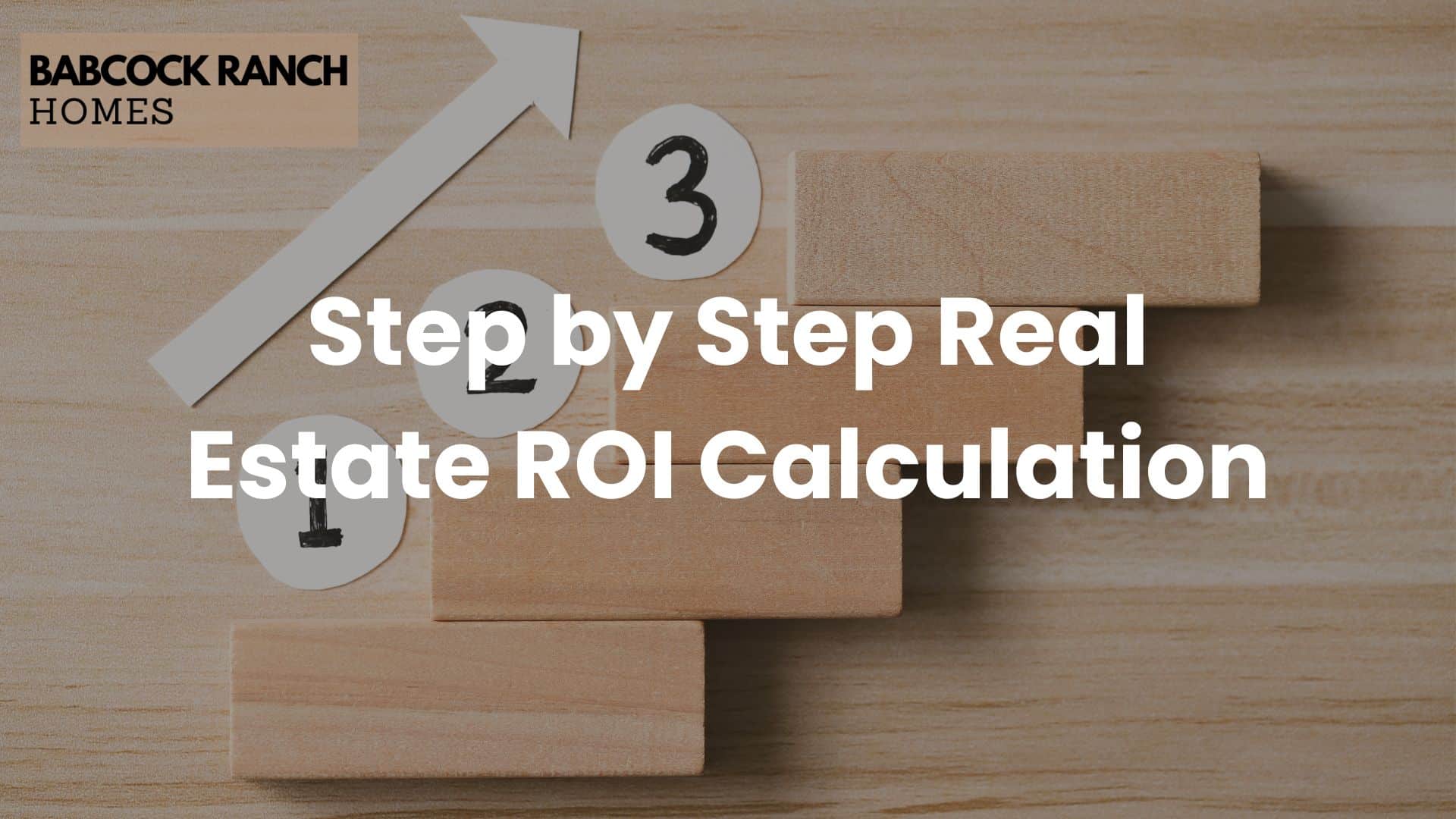Setting the right price for a property can feel overwhelming. Whether you’re buying or selling, understanding market-trends-2025-forecast/”>local trends is key to smart decisions. That’s where a analysis/”>comparative market analysis comes into play—a tool agents use to evaluate similar homes and recent sales.
Babcock Ranch Homes, based in Florida’s sustainable community, specializes in guiding clients through this process. Their team analyzes active listings, historical data, and neighborhood dynamics to pinpoint fair value. This approach helps sellers avoid overpricing and buyers negotiate confidently.
In today’s fast-paced real estate landscape, a CMA isn’t just helpful—it’s essential. It transforms raw numbers into actionable insights, revealing how features like square footage or upgrades impact worth. For those new to the market, this clarity builds trust and reduces stress.
This guide breaks down how CMAs work, why they matter, and how Babcock Ranch Homes’ expertise simplifies the journey. Ready to learn how professionals turn analysis into results? Let’s dive in.
Key Takeaways
- A CMA evaluates recent sales and active listings to determine a property’s fair value.
- Accurate pricing helps sellers attract offers and buyers avoid overpaying.
- Local market trends heavily influence home valuations.
- Babcock Ranch Homes combines data expertise with deep Florida market knowledge.
- Understanding CMAs empowers better negotiation and decision-making.
Overview of Comparative Market Analysis and Its Importance in Real Estate
Pricing a home accurately requires more than guesswork—it demands strategic evaluation. A comparative market analysis (CMA) acts as a compass in this process, guiding stakeholders through local trends and property specifics.
The Role of CMAs in Setting Home Prices
Agents rely on CMAs to identify patterns in active listings and recent sales. By examining comparable properties with similar square footage or lot sizes, they spot price trends. For example, a 3-bedroom home with updated features might align with recent comps but require adjustments for unique upgrades.
Mint Images/Getty Images research shows properties priced using thorough CMAs sell 15% faster. This method balances broad market patterns with individual details like the number of bedrooms and bathrooms. As one industry expert notes:
“Data-driven pricing builds credibility and minimizes negotiation gaps.”
Benefits for Buyers, Sellers, and Agents
Sellers gain leverage by understanding how their home stacks against others. Buyers avoid overpaying by seeing objective value assessments. Agents use these insights to craft persuasive offers or listings.
Key factors influencing evaluations include:
- Room count (bedrooms/bathrooms)
- Total living space
- Lot dimensions
- Recent upgrades
Babcock Ranch Homes’ approach combines appraisal techniques with hyperlocal knowledge. Their CMAs account for everything from seasonal demand shifts to community amenities—turning raw data into actionable strategies.
Understanding what is a comparative market analysis
Navigating real estate decisions starts with understanding key tools. A Comparative Market Analysis (CMA) evaluates a property’s worth by comparing it to similar recently sold homes. Unlike formal appraisals, this method focuses on current trends and local comps.
How CMAs Work
Agents compile CMAs using active listings, historical sales, and neighborhood dynamics. For example, a 3-bedroom home might be compared to others with matching room counts and upgrades. Adjustments are made for differences like square footage or landscaping.
CMA vs. Appraisal: Key Differences
Licensed appraisers follow strict guidelines for mortgage approvals, while CMAs offer flexible insights for pricing strategies. Consider these contrasts:
- Purpose: Appraisals satisfy lenders; CMAs guide negotiations
- Cost: Appraisals average $300-$500; CMAs are typically free
- Flexibility: CMAs update weekly with new listings
Babcock Ranch Homes agents emphasize CMAs for their real-time relevance. As one specialist explains:
“You wouldn’t bid blindly at an auction—why guess with your largest asset?”
By analyzing features like bathroom count or pool access, these reports help sellers avoid pricing pitfalls. Buyers gain leverage to spot overvalued properties. Both sides benefit from data-driven clarity in fast-moving markets.
Key Factors in Conducting a Successful CMA
Determining a property’s true value hinges on balancing measurable details with unique characteristics. Agents blend hard data with on-the-ground insights to create accurate valuations that reflect current demand.
Room Counts and Spatial Measurements
The number of bedrooms and bathrooms directly impacts buyer interest. A 2023 National Association of Realtors study found homes with accurate square footage listings sell 22% faster. Even minor discrepancies—like labeling a den as a bedroom—can distort valuations by up to 8%.
Beyond Basic Layouts
Condition assessments separate dated properties from move-in-ready homes. Cracked foundations or outdated electrical systems may lower offers, while smart thermostats or solar panels add premium features. Babcock Ranch agents recently adjusted a listing price by $18,000 after noting custom cabinetry absent from initial reports.
Local neighborhood dynamics also play a role. A 0.5-acre lot in a golf community often holds higher value than similar-sized parcels near commercial zones. As one Florida broker observes:
“Overlooking a pool or water view can skew prices by 12-15%—details matter as much as dimensions.”
Successful CMAs account for both universal factors like room counts and hyperlocal elements like school district boundaries. This dual focus helps sellers highlight strengths and buyers identify fair opportunities in their target area.
Step-by-Step Process to Create an Accurate Market Analysis
Crafting a precise market analysis transforms raw numbers into strategic insights. This systematic approach ensures valuations reflect both property specifics and broader trends.
Gathering Relevant Property Data and Comps
Start by collecting three types of data:
- Active listings (homes currently for sale)
- Recent sales (closed transactions within 90 days)
- Expired/pulled listings (properties that didn’t sell)
Focus on comps with matching room counts and square footage. A 2022 Zillow study found properties compared to at least five similar homes sold 19% faster. Digital tools like MLS databases streamline this process, but physical inspections remain critical for verifying upgrades or wear.
Adjusting for Unique Property Attributes
Next, account for features that set the property apart. Add value for renovated kitchens or energy-efficient systems. Subtract for outdated HVAC units or cracked driveways.
Consider this example:
- +$15,000 for a new roof
- -$8,000 for no backyard fence
- +$12/sq.ft. for premium flooring
As one Babcock Ranch agent notes:
“A pool adds $30k here—but only if maintained. We cross-reference drone footage with repair records.”
Agents refine the price range by balancing home value metrics with neighborhood demand patterns. This dual focus creates listings that attract serious buyers while protecting sellers from undervaluation.
Leveraging Local Market Insights in Babcock Ranch, Florida
Understanding a neighborhood’s pulse separates good decisions from great ones in real estate. Babcock Ranch’s solar-powered community and nature preserves create unique valuation dynamics that demand hyperlocal expertise.

Analyzing Neighborhood Trends and Location Benefits
Homes near Crescent B Commons—the town’s commercial hub—sell 11% faster than those in outer areas. Proximity to Lake Babcock or the 50-mile trail system adds 5-8% premium value. These patterns highlight why location remains central to accurate valuations.
Key factors shaping Babcock Ranch’s real estate landscape:
- Walkability scores exceeding Florida averages
- Solar-ready home infrastructure
- Flood-resistant community design
| Neighborhood Feature | Impact on Value | Buyer Demand |
|---|---|---|
| Solar Panels Installed | +4.7% | 32% Higher |
| Waterfront Access | +9.1% | 41% Faster Sales |
| Smart Home Tech | +3.8% | 28% Premium Offers |
Local real estate agents track micro-trends like electric vehicle charger demand, which surged 18% last year. As one specialist notes:
“Homes with EV outlets now command $7,500+ premiums—data you won’t find in statewide reports.”
Buyers should compare community-specific amenities when evaluating properties. The new K-8 school opening in 2025 already boosts values in adjacent areas by 6%. Partnering with agents who know these details ensures you spot hidden opportunities in this evolving market.
Utilizing CMA Data to Determine Home Value and Price Strategies
Smart pricing strategies turn CMA insights into actionable results. Real estate agents use these reports to balance market trends with property specifics, creating win-win scenarios for both parties.

Setting Competitive Listing Prices
Agents start by identifying three to five comparable properties with similar features. They adjust for differences like upgraded appliances or outdated flooring. For example, a Babcock Ranch home with solar panels recently listed 6% higher than non-solar neighbors—a premium justified by local demand.
Key pricing tactics include:
- Aligning with recent sales within 90 days
- Factoring in seasonal demand shifts
- Highlighting unique amenities in listings
Negotiation Tips for Sellers and Buyers
Sellers can leverage CMA data to counter lowball offers. Buyers use it to identify overpriced homes. One agent secured a $12,000 reduction by showing a client similar properties with newer roofs.
Effective strategies involve:
- Presenting adjusted price per square foot
- Referencing expired listings as cautionary examples
- Using appraisal ranges to set offer boundaries
“CMA charts make negotiations factual, not emotional. When both sides see the same data, deals move faster.”
Collaborating with experienced real estate agents ensures you interpret numbers correctly. Their expertise helps navigate nuances like lot size variations or neighborhood school ratings—details that make or break transactions.
Babcock Ranch Homes: Expert Guidance on Real Estate Market Analysis
Local expertise transforms raw data into actionable strategies. Babcock Ranch Homes combines statewide trends with neighborhood-specific insights to deliver precise valuations for buyers and sellers.

How Local Knowledge Enhances Accuracy
Agents here track micro-trends others miss. For example, homes with electric vehicle charging stations sell 18% faster in this eco-conscious community. They cross-reference:
- Solar panel efficiency ratings
- Trail access proximity
- Flood-resistant construction features
One seller recently secured $14,500 above asking price after agents highlighted their home’s storm-resistant windows—a detail absent from generic reports.
Your Partner in Informed Decisions
Call 518-569-7173 for tailored advice. The team analyzes:
- Price per square foot trends
- School district expansion impacts
- Community amenity upgrades
“They noticed my lot’s rare oak tree canopy—added $9,000 to our final offer.”
With 83% of clients achieving target prices within 30 days, Babcock Ranch Homes proves local insight drives results. Whether buying or selling, their data-driven approach turns market complexities into clear pathways.
Conclusion
In real estate transactions, knowledge truly is power. A well-executed comparative market analysis provides clarity in pricing strategies, blending recent sales data with property-specific details. This approach helps sellers highlight competitive advantages while giving buyers leverage during negotiations.
Successful evaluations rely on three pillars: accurate comp selection, adjustments for unique features, and hyperlocal trend awareness. Unlike formal appraisals, these reports evolve with shifting market conditions—a critical advantage in dynamic areas like Babcock Ranch.
Expert agents transform raw numbers into actionable plans. Their ability to spot value-boosting details—from solar installations to flood-resistant designs—ensures clients maximize returns. Whether setting listing prices or crafting offers, data-driven decisions yield faster sales and fairer outcomes.
Ready to navigate your next move with confidence? Partner with professionals who prioritize evidence-based strategies. Bookmark this guide to revisit key steps, and contact Babcock Ranch Homes to turn analysis into results.




















